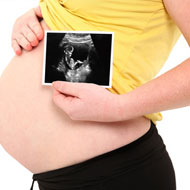- General Articles
- General Pregnancy Questions
- Baby Growth
- Pregnancy Diet
- Miscarriage
- During Pregnancy
- Twin Pregnancy
- Toddler Meals
- Home Remedies During Pregnancy
- Breastfeeding
- Pregnancy Week By Week
- Pregnancy Tests
- Ectopic Pregnancy
- Pregnancy Signs and Symptoms
- Pregnancy Stages
- Potty Training
- Fetal Development
- Preschooler
- Postpartum Depression
- Toddler Illness
- Baby Care
- After Pregnancy
- Molar Pregnancy
- During Delivery
- Beauty and Style
- Pregnancy Clothing
- Preconception
- Fertility
39 Weeks Pregnancy Pain
At 39 weeks of pregnancy, the mother should watch out for signs of labor. By this time, the baby is fully equipped to survive outside the womb and may get cramped inside the small space of the uterus. Delivery can occur at any time now. Even if delivery occurs before the expected due date, the pregnancy is considered to have reached its full term. At 39 weeks pregnant, the baby is likely to weigh about 7 pounds. By week 39 of a pregnancy, the baby’s lungs will have matured completely. The baby still continues to grow even now. Regular monitoring is necessary during these last few days.
The progress of the baby is tracked by closely monitoring the heart beat. At 39 weeks, the mother is likely to experience considerable discomfort as she will become heavier and clumsier. Standing up and sitting down may become increasingly difficult.
The breasts also become bigger and fuller as they prepare for milk production to feed the newborn baby. Most pregnant mothers find that they are unable to sleep properly. There is also a constant urge to urinate due to the pressure being exerted on the lower abdomen and bladder. The baby begins to move downwards towards the pelvis. This is referred to as lightening and is a way for the baby to prepare for delivery. The baby normally stays active until the birth. If there is a reduction in the baby’s activity, it is advisable to consult a doctor.
Cramping in the legs commonly occurs while sleeping and many women find it easier to sleep in a recliner that on a bed. Most women complain of 39 weeks pregnancy pains. Swelling and pain in the legs and feet usually occurs by week 39. This is also a time when false labor contractions commonly take place. When such contractions occur, the woman will be able to move about easily. On the other hand, real labor makes it difficult to change positions and the contractions also worsen. It is time for the baby to arrive when the water breaks or is about to break. As the delivery date comes closer, some other symptoms are also likely to occur. Not all of these symptoms may be present. The intensity of the symptoms may also vary. Some common symptoms that occur in the last stages of pregnancy include weight loss, increased appetite, loss of mucus plug and loose stools.
Read more articles from the Pregnancy Week By Week Category.



 7 Must-Haves Before Your Baby Arrives
7 Must-Haves Before Your Baby Arrives Bonding Games for Babies
Bonding Games for Babies DIY Baby Bath Towel Apron
DIY Baby Bath Towel Apron Common Late Pregnancy Fears
Common Late Pregnancy Fears